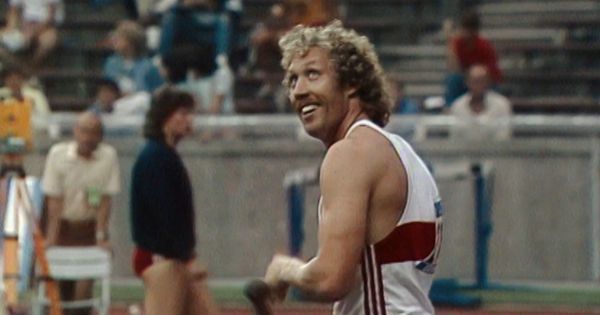Going For Gold by Ksawery Szczepanik, which premiered at the Warsaw International Film Festival, presents the story of the Polish sportsman Wladyslaw Kozakiewicz – a pole vaulter who accidentally became a symbol of political opposition against the Soviet Union among icons including the leader of the Solidarity movement Lech Walesa and Karol Wojtyla, better known as Pope John Paul II. Szczepanik analyses how Kozakiewicz’s position as a national idol changed to a traitor. It’s the story of the individual trapped in politics and the painful process of the falling star. A day after the premiere the director answered the questions of the participants of the FIPRESCI Warsaw Critics Project.
 |
| Going For Gold director Ksawery Szczepanik Photo: Courtesy of Warsaw Film Festival |
Well, I don’t think Kozakiewicz is an icon any more. For a filmmaker, it’s easier to work with the protagonist who needs attention from the media. And Kozakiewicz is a guy like this. He likes to be in front of the camera and talk about himself.
Did it make him happy that you contacted him – the former icon?
Yes, definitely yes. We had numerous meetings and he was happy to speak to me, although like an ex-star, he always wants to be a star. He tries to be in the spotlight. At one point he tried to run for the Polish parliament and this was the moment when he totally turned off his phone and I couldn’t contact him for two months.
As you said, for you, Kozakiewicz is not an icon anymore. Did you want to deconstruct his myth?
He is not a star any more but I definitely wanted to exploit the fact of what a bright star he used to be. My goal was to show the fall of the star in the end. That’s why I choose the word “exploit”: I wanted to take advantage of the moment of him being a star as much as possible, use as many archives and covers of newspapers and magazines.
Why did you concentrate on showing his fall?
I didn’t want to make a film against my protagonist but I wanted to show a journey that has its high point in the moment of greatness but afterward, life goes on and it’s not as sweet any more as he would like it to be. And I think this is something universal, this is something that might happen to our current tennis star Iga Swiatek. I hope she will be smarter than Wladyslaw Kozakiewicz.
 |
| Wladyslaw Kozakiewicz Photo: Courtesy of Warsaw Film Festival |
Well, the beginning of his journey is when he shows the gesture to the Soviet public. Kozakiewicz told me that it was a spontaneous gesture interpreted by the media as anti-Soviet. I suppose that he was smart enough to use it and build himself into a political icon and keep the interest of the people around him.
In your documentary, some heroes seem to be missing. There is a charming scene, where Kozakiewicz tells the story about meeting his wife, he says that they are dancing till today but as a viewer, I wanted to see her on the screen.
I must admit that at some point during the shooting, I wanted to invite her to Poland and have her in front of the camera, she could have made this film better but then there were simple obstacles connected to the budget and the production. But I agree with you that this is my fault that she’s not there and there are not enough women in the film. Maybe if we had a budget, money for a longer film then, in the end, she could appear again and question if they really keep on dancing together would be answered. And the answer might be “no” because the star wants nothing else – just to be a star.






















